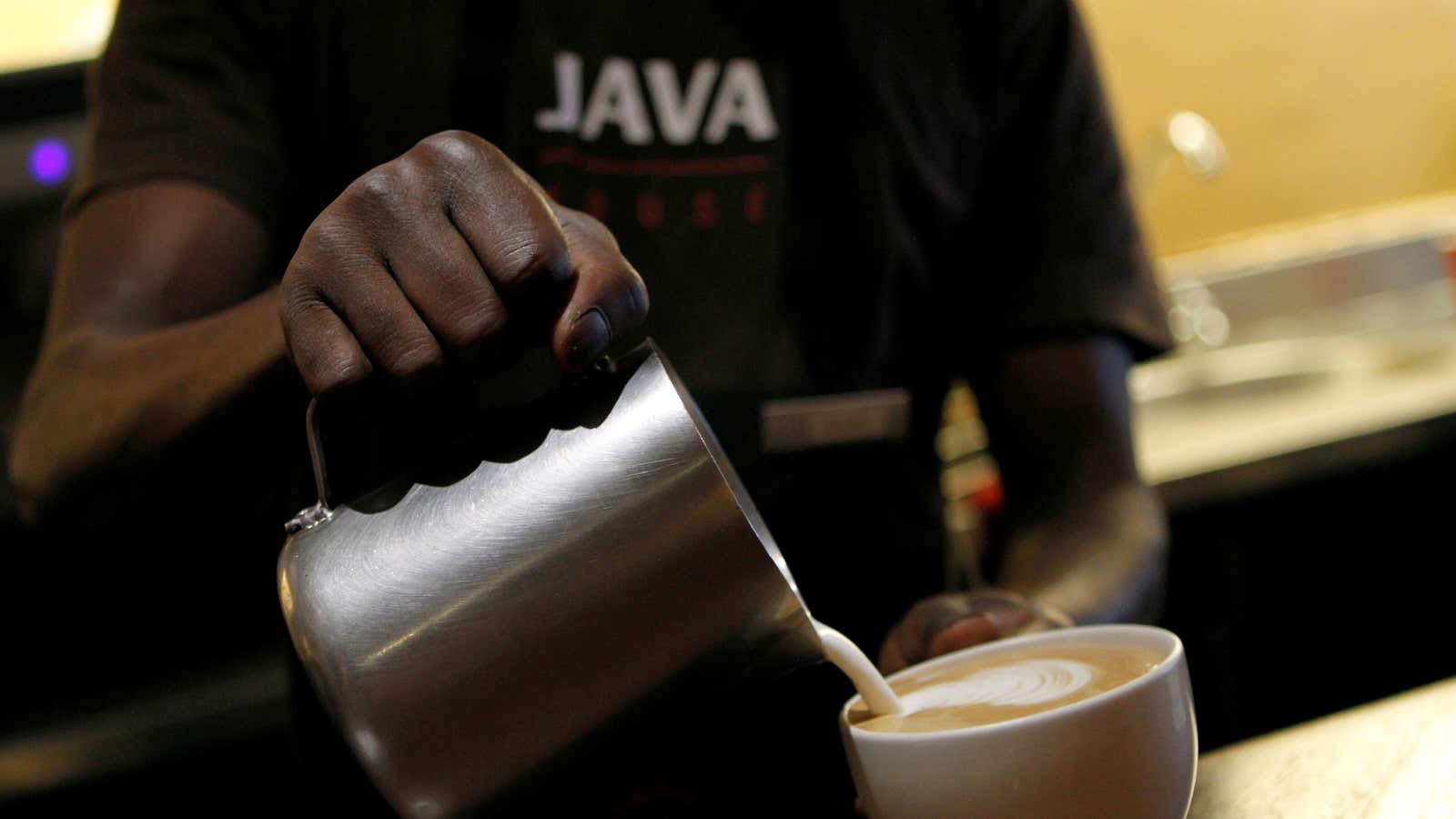Java House, east Africa’s largest chain of coffee and dining shops, is taking Kenyan coffee and tea to China.
The company said it signed a distributorship agreement with Green Chain, a subsidiary company of the Shanghai-based based logistics firm CJ Smart Cargo. Under the deal, Java will sell 10 tons to 15 tons a month of its 375-gram bags of Kenya AA Arabica coffee and Gold Label Tea brands. Java said the partnership was part of its expansion strategy, aimed at solidifying its place in markets in Europe, the United States, and China.
The decision to export to China showcases Java’s ambitions to take its brand beyond East Africa and to capitalize on the increased demand for specialty coffee globally. Kenya is a world-leading tea producer, but its Arabica beans are sought by global roasters who blend them with other varieties. And with greater urbanization and rising disposable incomes, coffee culture is also gradually taking root, allowing coffee houses like Java, which sprung up in Nairobi, to spread across the East African region. The company, owned by troubled private equity firm Abraaj, now operates 57 outlets in Kenya, Uganda, and Rwanda.
Like Kenya, China is a tea-drinking nation, yet the coffee wars are already heating up there too. Starbucks recently paired up with e-commerce giant Alibaba to allow consumers to order coffee through their phones. The retailer is however already facing competition from Luckin Coffee, a Beijing-based startup that’s opened more than 500 outlets across China in less than nine months and is now worth $1 billion. With decreased store sales, Starbucks recently said it will ramp up its delivery services across China.
Java’s exports to China could mark a boost for Kenyan coffee brands, and by extension, Africa’s. From Ethiopia in the east to Côte d’Ivoire in the west, African nations account for some of the world’s top coffee growers. But coffee production and processing in the continent has faced numerous challenges, including lack of appropriate technology and machinery, the threat of pests and diseases, the impact of climate change, besides the steady decline in global prices that combined, have eroded African growers’ global competitiveness.
Kenya’s government has especially taken steps to motivate the sector, including removing levies, introducing new varieties to reduce production expenditure, and waiving farmers’ debts. County governments are also piloting cash-on-delivery programs that would help pay farmers faster after delivering their beans to societies and other buyers. In June, a lawmaker proposed a bill to ban unprocessed coffee exports in a bid to boost local mills and the ‘Made in Kenya’ label.
